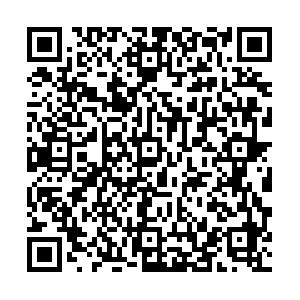Influence of PBL Teaching Method on Critical Thinking of General Surgery Interns
-
摘要:
目的 评价基于PBL教学法对临床医学专业外科实习生评判性思维能力的影响,以提高临床专业本科生评判性思维能力。 方法 将2020年3月至12月参加肝胆胰外科四病区实习的大四临床医学专业本科实习生190名纳入本研究,随机法分成对照组和实验祖,实验组接纳PBL讲习方式,对照组则接纳传统讲习方式。利用评判性思维能力问卷评价2组实习生干预前后评判性思维能力的变化。 结果 干预后实验组评判性思维得分总分高于对照组(P < 0.001),实验组在分析能力、评判性思维自信心、求知欲和认知成熟度4个维度均优于对照组( P < 0.05);干预后实验组外科操作成绩为(91.04±3.51)分,高于对照组(85.72±3.94)分( P < 0.05);干预后实验组学生对课程满意度的各项量化指标均高于对照组( P < 0.05)。 结论 PBL教学方式可显著提高临床专业普外科实习生评判性思维能力。 Abstract:Objective To evaluate the effect of PBL teaching method on the critical thinking ability of surgical interns majoring in clinical medicine, so as to improve the critical thinking ability of undergraduates majoring in clinical medicine. Methods A total of 190 clinical medicine undergraduate interns who participated in the laboratory practice from March to December 2020 were included in this study. They were randomly divided into control group and experiment pilot. The experimental group received PBL teaching mode, while the control group received traditional teaching mode. Critical thinking ability questionnaire was used to evaluate the change of critical thinking ability before and after intervention. Results After intervention, the total score of critical thinking in the experimental group was higher than that in the control group (P < 0.001), and the experimental group was better than the control group in the four dimensions of analytical ability, critical thinking confidence, curiosity and cognitive maturity ( P < 0.05). After intervention, the surgical operation score of experimental group (91.04±3.51) was significantly higher than that of control group (85.72±3.94) ( P < 0.05). After intervention, the quantitative indexes of course satisfaction of the experimental group were significantly higher than that of the control group ( P < 0.05). Conclusion PBL teaching method can significantly improve the critical thinking ability of clinical general surgery interns -
Key words:
- PBL teaching method /
- Surgical intern /
- Critical thinking
-
表 1 2组普外科实习生评判性思维能力总分和各维度分数评价[( $ \bar x \pm s $),分]
Table 1. Evaluation of total score of critical thinking ability and each dimension score of 2 groups of general surgery interns [( $ \bar x \pm s $),score]
指标 对照组 实验组 t P n 95 95 寻找真相 干预前 28.96 ± 6.56 28.08 ± 5.49 0.514 0.609 干预后 36.08 ± 4.63 38.36 ± 6.65 −1.407 0.166 t −4.434 −5.959 P < 0.001* < 0.001* 开放思想 干预前 30.84 ± 3.39 30.24 ± 3.90 0.581 0.564 干预后 37.02 ± 3.50 38.76 ± 3.46 −1.586 0.199 t −6.529 −8.179 P < 0.001* < 0.001* 分析能力 干预前 28.68 ± 6.47 27.76 ± 5.57 0.539 0.592 干预后 36.12 ± 3.47 38.64 ± 4.11 −2.342 0.023* t −5.070 −7.858 P < 0.001* < 0.001* 系统化能力 干预前 29.16 ± 5.54 26.36 ± 7.02 1.565 0.124 干预后 35.76 ± 3.13 35.12 ± 3.97 −1.334 0.101 t −5.191 −6.283 P < 0.001* < 0.001* 评判性思维自信心 干预前 28.96 ± 8.23 28.04 ± 7.57 0.411 0.683 干预后 33.72 ± 5.42 37.20 ± 6.16 −2.120 0.039* t −2.414 −4.690 P 0.02* < 0.001* 求知欲 干预前 26.26 ± 8.05 22.84 ± 6.56 0.566 0.166 干预后 33.60 ± 5.22 39.52 ± 5.53 −3.892 < 0.001* t −3.086 −9.724 P < 0.001* < 0.001* 认知成熟度 干预前 28.14 ± 6.22 27.84 ± 7.35 −0.104 0.918 干预后 34.20 ± 5.43 38.44 ± 5.09 −2.848 0.006* t −4.071 −5.926 P < 0.001* < 0.001* 总分 干预前 201.00 ± 31.33 191.16 ± 26.85 1.071 0.289 干预后 246.68 ± 13.80 266.04 ± 22.32 −4.260 < 0.001* t −6.818 −11.152 P < 0.001* < 0.001* *P < 0.05。 表 2 干预后两组实习生外科操作考核成绩比较( $ \bar x \pm s $,分)
Table 2. Comparison of surgical operation assessment results between the two groups of interns after intervention ( $ \bar x \pm s $,score)
组别 n 操作成绩 t P 对照组 95 86.72 ± 4.94 −5.042 < 0.001* 实验组 95 91.04 ± 3.51 *P < 0.05。 表 3 干预后2组实习生满意度调查情况[n = 95,n(%)]
Table 3. Satisfaction survey of interns in the two groups after intervention [n = 95,n(%)]
组别 激发学生学习兴趣 培养自学能力 促进对理论知识的掌握 提高语言表达和沟通能力 提高临床思维能力 对照组 41(43) 43(45) 47(49) 38(40) 34(36) 实验组 58(61) 62(65) 70(73) 58(61) 63(66) χ2 6.095 7.685 11.768 8.422 17.713 P 0.014* 0.006* 0.001* 0.004* < 0.001* *P < 0.05。 -
[1] Nawabi S,Javed M Q,Bilal R. Problem-based learning and team-based learning as a novel package approach[J]. J Coll Physicians Surg Pak,2021,30(6):710-715. [2] Tan H,Huang E,Deng X,et al. Application of 3D printing technology combined with PBL teaching model in teaching clinical nursing in congenital heart surgery:A case-control study[J]. Medicine (Baltimore),2021,100(20):25918-25924. [3] Dring J C. Problem-Based Learning - Experiencing and understanding the prominence during Medical School:Perspective[J]. Ann Med Surg (Lond),2019,47(9):27-28. [4] Turan S,Konan A,Kılıç Y A,et al. The effect of problem-based learning with cooperative-learning strategies in surgery clerkships[J]. J Surg Educ,2012,69(2):226-230. doi: 10.1016/j.jsurg.2011.07.010 [5] Bai X,Zhang X,Wang X,et al. Follow-up assessment of problem-based learning in dental alveolar surgery education:a pilot trial[J]. Int Dent J,2017,67(3):180-185. doi: 10.1111/idj.12275 [6] Zia A,Dar U F. Critical Thinking:Perception and disposition of students in a Medical College of Pakistan[J]. J Pak Med Assoc,2019,69(7):968-972. [7] Futami A,Noguchi W M,Mikoshiba N,et al. Critical thinking disposition among hospital nurses in Japan:Impact of organizational versus personal factors[J]. Jpn J Nurs Sci,2020,17(2):1-9. [8] Zhao W,He L,Deng W,et al. The effectiveness of the combined problem-based learning (PBL) and case-based learning (CBL) teaching method in the clinical practical teaching of thyroid disease[J]. BMC Med Educ,2020,20(1):381-390. doi: 10.1186/s12909-020-02306-y [9] O'Neill P A,Willis S C,Jones A. A model of how students link problem-based learning with clinical experience through "elaboration"[J]. Acad Med,2002,77(6):552-561. doi: 10.1097/00001888-200206000-00015 [10] Tsigarides J,Wingfield L R,Kulendran M. Does a PBL-based medical curriculum predispose training in specific career paths? A systematic review of the literature[J]. BMC Res Notes,2017,10(1):24-33. doi: 10.1186/s13104-016-2348-0 [11] Yadav R L,Piryani R M,Deo G P,et al. Attitude and perception of undergraduate medical students toward the problem-based learning in Chitwan Medical College,Nepal[J]. Adv Med Educ Pract,2018,9(3):317-322. [12] Liu C X,Ouyang W W,Wang X W,et al. Comparing hybrid problem-based and lecture learning (PBL + LBL) with LBL pedagogy on clinical curriculum learning for medical students in China:a meta-analysis of randomized controlled trials[J]. Medicine (Baltimore),2020,99(16):19687-19696. [13] Alduraywish A A,Mohager M O,Alenezi M J,et al. Evaluation of students’ experience with Problem-based Learning (PBL) applied at the College of Medicine,Al-Jouf University,Saudi Arabia[J]. J Pak Med Assoc,2017,67(12):1870-1873. -





 下载:
下载: 
